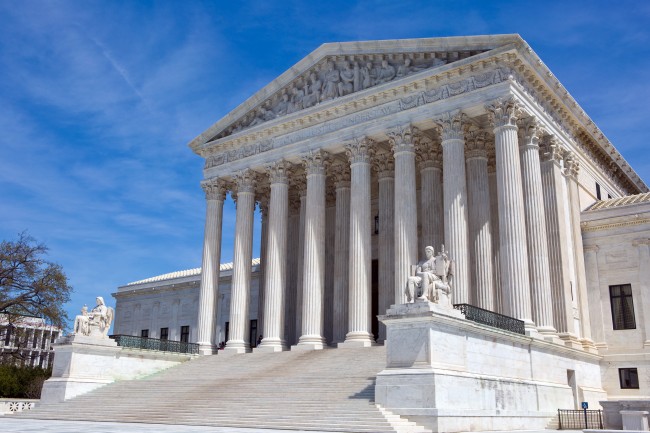Show posts for: Whistleblowers
-
 Read more
Read moreUnder the National Labor Relations Act (NLRA), employees have a right of collective action, and employers are prohibited from interfering with that right. But these provisions can conflict with an employer’s desire and ability to regulate conduct in the workplace.
One such conflict arises when employers conduct internal investigations. Employers may want to keep those investigations confidential, so that employees do not spread information about them through the workplace or coordinate their responses.
-
 Read more
Read moreTell the Securities and Exchange Commission (SEC). That’s the message the United States Supreme Court sent to whistleblowers with its decision yesterday in Digital Realty Trust, Inc. v. Somers.
As we previously covered here, the Digital Realty case involved a key issue under the Dodd-Frank Act’s anti-retaliation provision: does the provision apply to a whistleblower who reported internally, but did not provide information to the SEC?
-
 Read more
Read moreWhen the calendar flips from December to January, it’s a good time to take stock of what to expect over the next 12 months. Here are four major issues in employment law that we’ll be watching in 2018:
-
Read more
When Congress passed the Dodd-Frank Act in 2010, it bolstered protections for whistleblowers who report certain kinds of misconduct, such as violations of securities law. At the time, the Sarbanes-Oxley Act already provided many of these whistleblowers with a cause of action for retaliation. But the new Dodd-Frank cause of action included a longer statute of limitations, a more generous damages remedy, and a right to proceed straight to federal court rather than first bringing the claim to the Department of Labor (as Sarbanes-Oxley requires).
Sarbanes-Oxley provides protection for individuals who blow the whistle internally. But courts have struggled with whether Dodd-Frank provides that same protection, or if Dodd-Frank protects only individuals who report misconduct to the Securities and Exchange Commission (SEC) directly.
-
 Read more
Read moreGhosts, ghouls, and ghastly liability; the last is certainly enough to spook any employer. For this Halloween, we take a trip down Elm Street to revisit the most startling nightmares we’ve ever covered.
It Came From the General Counsel’s Office. In March of this year, we told the story of an in-house attorney who won a $14.5 million verdict against his employer after he raised concerns about FCPA violations at the company. The company’s case faltered when the trial revealed that a negative review of the attorney had been backdated.
-
 Read more
Read moreThe Dodd-Frank Act, passed in 2010, includes a new cause of action for whistleblowers who claim that their employer retaliated against them for reporting wrongdoing. But it’s not yet certain whether a whistleblower who blew the whistle internally, but not to the Securities & Exchange Commission, can bring a Dodd-Frank claim. As we covered in this post, federal judges have issued conflicting decisions on this issue.
The Supreme Court is now ready to resolve this conflict. Today, the Court granted certiorari in Digital Realty Trust, Inc. v. Paul Somers, which presents the question of whether the Dodd-Frank protection extends to an internal whistleblower.
-
 Read more
Read moreWhen Congress passed the Sarbanes-Oxley and Dodd-Frank Acts, it included protections for employees who blow the whistle on wrongdoing by their employers. However, those whistleblower protections don’t apply to every report of wrongdoing. Rather, they come into play only when an employee reports particular types of misconduct.
For example, in a recent decision (Erhart v. BofI Holding, Inc.), a federal court in California dismissed claims by an internal auditor (Erhart) against his employer (BofI Holding), ruling that Erhart didn’t plausibly allege that he had been engaged in the "protected activity" necessary to qualify for the whistleblower protections of those statutes.
-
 Read more
Read moreIn our last post, we discussed the case of Wiest v. Tyco, in which the Third Circuit held that an employer’s investigation of unrelated wrongdoing by an employee insulated it against the employee’s Sarbanes-Oxley whistleblower retaliation claim. Now, we tackle another piece of the Wiest decision: the court’s holding that Wiest’s protected activity did not contribute to the adverse action against him.
To establish a Sarbanes-Oxley claim, an employee must show that there was a causal connection between his or her whistleblowing and an adverse employment action. If the employee can’t show that link, then he or she can’t prevail. In the Wiest case, the court assumed that Wiest did in fact engage in protected whistleblowing activity. But it held that Wiest didn’t have evidence to show that the whistleblowing caused the employer to take action against him.
-
 Read more
Read moreAn employee who has blown the whistle on wrongdoing is not immune from discipline or termination simply because she has engaged in protected activity.
The Third Circuit’s recent decision in Wiest v. Tyco Electronics provides a good example of how an employer can terminate an employee without legal repercussions, even when it is undisputed that the employee was protected against whistleblower retaliation.
-
 Read more
Read moreSection 1514A of the Sarbanes-Oxley Act shields a whistleblower from retaliation if he reports “conduct [that he] reasonably believes” violates certain laws, including Securities and Exchange Commission regulations. Last month, the Sixth Circuit held that the question of a whistleblower’s “reasonable belief” is a “simple factual question requiring no subset of findings that the employee had a justifiable belief as to each of the legally-defined elements of the suspected fraud.” Rhinehimer v. U.S. Bancorp Investments, Inc., No. 13-6641 (6th Cir. May 28, 2015). Based on this principle, the court affirmed a $250,000 verdict in favor of the plaintiff, Michael Rhinehimer.
According to the Court’s opinion, Rhinehimer was a financial planner for U.S. Bancorp who helped his elderly customer, Norbert Purcell, set up a trust and a brokerage account. In November 2009, Rhinehimer went on disability leave, and asked a colleague not to conduct any transactions with Purcell. The colleague didn’t follow the instructions, and instead put Purcell into investments that Rhinehimer believed were unsuitable. (Unsuitability fraud under the securities laws occurs when a broker knows or reasonably believes certain securities to be unsuitable to a client’s needs, but recommends them anyway.) Rhinehimer complained about the trades, but his superiors warned him that he should “stay out of the matter” and stop criticizing the colleague. After Rhinehimer hired a lawyer, he was placed on a performance improvement plan and fired after he failed to meet it.
As the regulatory and business environments in which our clients operate grow increasingly complex, we identify and offer perspectives on significant legal developments affecting businesses, organizations, and individuals. Each post aims to address timely issues and trends by evaluating impactful decisions, sharing observations of key enforcement changes, or distilling best practices drawn from experience. InsightZS also features personal interest pieces about the impact of our legal work in our communities and about associate life at Zuckerman Spaeder.
Information provided on InsightZS should not be considered legal advice and expressed views are those of the authors alone. Readers should seek specific legal guidance before acting in any particular circumstance.
Contributing Editors

John J. Connolly
Partner
Email | +1 410.949.1149

Andrew N. Goldfarb
Partner
Email | +1 202.778.1822

Sara Alpert Lawson
Partner
Email | +1 410.949.1181

Nicholas M. DiCarlo
Associate
Email | +1 202.778.1835




